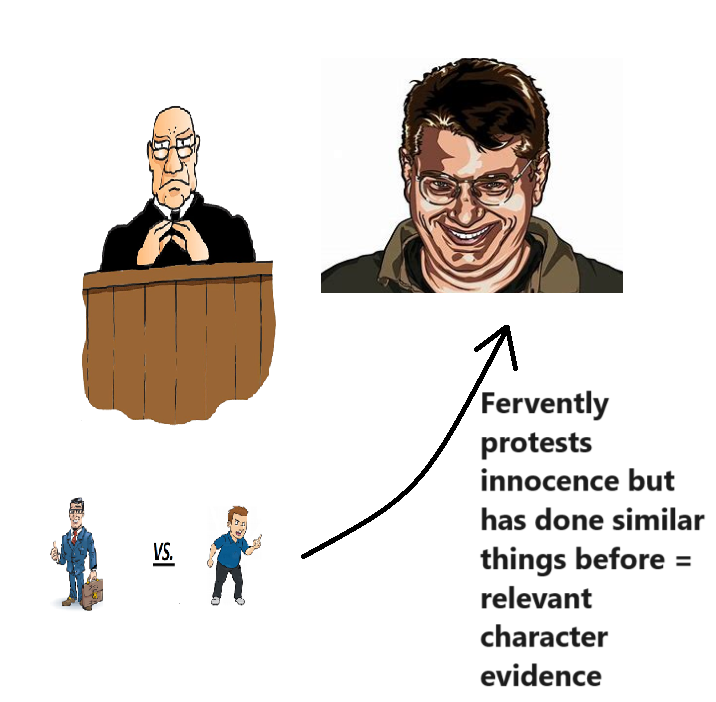Moorov v HM Advocate, 1930 JC 68
Citation: Moorov v HM Advocate, 1930 JC 68
Rule of thumb: If someone has done a similar thing in the past, can this be lodged against them in Court? Yes it can. This is character evidence which can be lodged.
Judgment:
In this case a shop owner sexually assaulted many of the female employees who he took on. Prior to this case none of the cases could be prosecuted because there was no corroboration of evidence. However, the shop-owner had done extremely similar things to many young women. The Court held that in these circumstances the complaints of many people counted as a form of corroborative evidence. If the other incidents are extremely similar in (i) circumstance, (ii) time and (iii) place, then they are considered relevant and a form of direct evidence, ‘of that quality I regard the evidence in this case; and no "decision to the contrary" has been produced. I am satisfied, as a matter of good law and good sense, that the appellant was properly convicted of the charges which have been made matter of challenge by his counsel. Let me add that I treat this as a special case, the circumstances in which are not, I think—indeed I hope—likely to recur. I have never seen, either when at the bar or on the bench, an indictment charging so many offences of this type against one man. I should hesitate long before endeavouring to lay down a footrule formula which would be the solvent of all difficulties in such cases. Indeed, a formula is not feasible. The nearest approach to a principle which I can find is that the Court must always inquire whether the case falls within the first or the second of the categories referred to by the Institutional writers, viz., whether the acts under review are independent or interdependent. That must always and manifestly be a question of degree and of circumstances. The circumstances stanced of this case leave no doubt in my mind as to the class within which the case falls. The acts of which the appellant has been proved to be guilty cannot accurately be described as sporadic or unrelated. They are but recurring episodes in an odious enterprise on which the appellant embarked. Holding these views, I am of opinion that the verdict, in so far as it is now challenged, must stand’, Lord Justice Clerk Alness, Moorov v HMA, 1930 J.C. 68 –an important foundational point of evidence was established by the Court. The Court held that where someone is accused of doing something which cannot be corroborated on its own, where there is a pattern of them doing similar things in the past then this can be deemed to be corroboration. Nonetheless the particular facts of the case were that there was a shopkeeper who was alleged to have sexually assaulted some of his female employees who worked for him in a secluded store cupboard – none of the individual girls’ cases were corroborated but the fact that they all had similar versions of events within a reasonable time frame meant that the case against Moorov was corroborated, ‘course of conduct’ at 89.

Warning: This is not professional legal advice. This is not professional legal education advice. Please obtain professional guidance before embarking on any legal course of action. This is just an interpretation of a Judgment by persons of legal insight & varying levels of legal specialism, experience & expertise. Please read the Judgment yourself and form your own interpretation of it with professional assistance.

